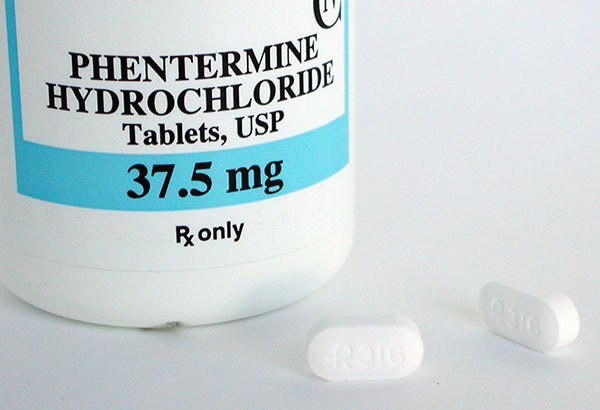How To Take Phentermine 37.5 For Best Results

Phentermine is a prescription medication that is primarily used for short-term weight loss in people who are obese or overweight. It works as an appetite suppressant by affecting the central nervous system to reduce feelings of hunger. It was first approved by the United States Food and Drug Administration (FDA) in 1959 for short-term use in the treatment of obesity. Phentermine belongs to a class of drugs called sympathomimetic amines, which work by suppressing the appetite and increasing metabolism.
Phentermine is typically prescribed as part of a comprehensive weight-loss program that includes a reduced-calorie diet and increased physical activity. It is only intended for short-term use, usually for a few weeks, because the body can develop a tolerance to its effects over time.
In the 1970s, phentermine use declined due to concerns about potential side effects and the availability of other weight loss medications. However, it regained popularity in the 1990s when it was combined with another medication called fenfluramine to create the weight loss drug Fen-Phen. The combination was effective at promoting weight loss but was later found to be associated with serious heart and lung problems, leading to its withdrawal from the market in 1997.
Today, phentermine is still available as standalone medications (Sentis, Elvenir, Obexol, Acxion) for short-term use in the treatment of obesity, Phentermine 37.5 is the most commonly prescribed dosage of the medication, and it is typically taken once per day in the morning. It is considered a controlled substance and is classified as a Schedule IV drug due to its potential for abuse and dependence.
Why Some People Get Poor Results With Phentermine
While phentermine can be an effective weight loss medication for many people, it may not work for everyone. There are several reasons why some people may not get the desired results from phentermine:
1. Genetics: Some people may have genetic factors that affect how their body responds to phentermine. For example, variations in the genes that control metabolism or appetite could make the medication less effective.
2. Underlying medical conditions: Certain medical conditions, such as thyroid disorders, may interfere with the effectiveness of phentermine.
3. Medication interactions: Phentermine can interact with other medications, such as antidepressants or blood pressure medications, which may reduce its effectiveness.
4. Improper use: Phentermine is only effective when used as part of a comprehensive weight loss program that includes a reduced-calorie diet and increased physical activity. Failing to follow these guidelines can reduce the effectiveness of the medication.
5. Tolerance: Over time, the body can develop a tolerance to the effects of phentermine, which can reduce its effectiveness.
It is important to note that phentermine is not a magic pill and should be used as part of a comprehensive weight loss program that includes lifestyle changes. If phentermine is not effective for a particular individual, other weight loss medications or approaches may be recommended by a healthcare provider.
How To Take Phentermine 37.5 For Best Results
As the most commonly prescribed dosage of The medication, there are several tips for taking phentermine 37.5 for best results:
1. Take it as directed: Phentermine should be taken exactly as prescribed by a healthcare provider. Typically, it is taken once per day in the morning, either with or without food. Do not take more than the recommended dose or take it for longer than prescribed.
2. Follow a healthy diet: Phentermine works best when combined with a healthy, reduced-calorie diet. Focus on eating a variety of nutrient-dense foods such as fruits, vegetables, lean proteins, and whole grains.
3. Increase physical activity: Regular physical activity can help to increase the effectiveness of phentermine. Aim for at least 30 minutes of moderate-intensity exercise, such as brisk walking or cycling, most days of the week.
4. Stay hydrated: Drink plenty of water throughout the day to stay hydrated and help support weight loss.
5. Avoid alcohol: Alcohol can interfere with the effectiveness of phentermine and may increase the risk of side effects. It is best to avoid alcohol while taking this medication.
6. Monitor side effects: Phentermine can cause side effects such as dry mouth, constipation, and trouble sleeping. If these side effects are bothersome, talk to a healthcare provider about ways to manage them.
How to know phentermine 37.5 is working for you
Here are some signs that phentermine is working for you:
1. Decreased appetite: Phentermine 37.5 is designed to suppress appetite, so if you notice that you are eating less and feeling full more quickly, this is a good sign that the medication is working.
2. Weight loss: Phentermine 37.5 is intended to aid in weight loss, so if you notice that you are losing weight, this is a sign that the medication is working for you. It is important to remember that weight loss may not occur immediately and that it may take a few weeks to see results.
3. Increased energy: Phentermine 37.5 can increase energy levels, which can help you to be more physically active and burn more calories. If you notice that you have more energy and are able to exercise for longer periods of time, this is a sign that the medication is working.
4. Improved mood: Phentermine 37.5 can also improve mood, which can be helpful for people who struggle with emotional eating or other mood-related issues related to weight loss. If you notice that you are feeling happier and more motivated, this is a sign that the medication is working.
It is important to note that phentermine is intended for short-term use and should be used as part of a comprehensive weight loss program that includes lifestyle changes. If you are not experiencing these positive effects or if you are experiencing side effects, talk to a healthcare provider about other options for weight loss.
Phentermine 37.5 Side Effects
While it can be effective for weight loss, it can also cause some side effects. Here are some of the common side effects of phentermine 37.5:
1. Dry mouth: Phentermine can cause a dry mouth, which can increase the risk of dental problems and make it difficult to eat and speak.
2. Insomnia: Phentermine can cause difficulty sleeping, which can lead to fatigue and other sleep-related problems.
3. Increased heart rate and blood pressure: Phentermine can increase heart rate and blood pressure, which can be dangerous for people with certain medical conditions, such as heart disease or high blood pressure.
4. Nervousness: Phentermine can cause feelings of nervousness, anxiety, or agitation.
5. Headache: Phentermine can cause headaches, which can be mild or severe.
6. Constipation: Phentermine can cause constipation, which can be uncomfortable and lead to other digestive problems.
7. Dizziness: Phentermine can cause dizziness or lightheadedness, which can be dangerous if it occurs while driving or operating heavy machinery.
It is important to talk to a healthcare provider if any of these side effects are bothersome or persistent. Additionally, seek medical attention immediately if you experience chest pain, shortness of breath, fainting, or any other serious side effects while taking phentermine 37.5.





